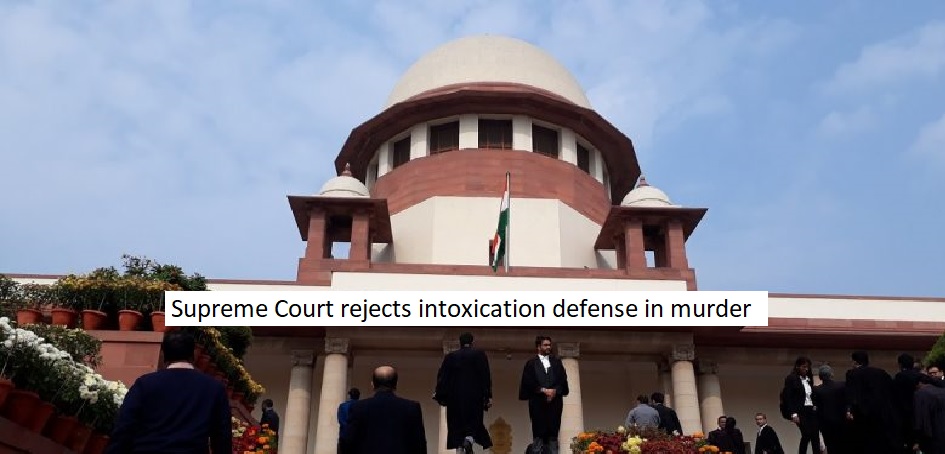


The Supreme Court, in a recent ruling, affirmed the conviction of an individual charged with murder under Section 302 of the Indian Penal Code (IPC). The decision was reached after a meticulous examination of the accused's state of intoxication during the commission of the crime. The Court took particular note of the fact that, despite being heavily intoxicated, the appellant demonstrated a level of physical coordination sufficient to walk properly. Moreover, the individual reportedly distanced themselves from the scene of the altercation by covering a distance of 15-20 steps before subsequently returning.
In rendering its decision, the Supreme Court presumably considered various factors, including the accused's level of intoxication and its potential impact on their capacity to form criminal intent. It is evident from the judgment that the Court did not find the state of intoxication to be a sufficient mitigating factor to absolve the appellant of criminal liability.
The specific details of the case, such as the nature of the quarrel and the events leading up to the murder, were not provided in the initial statement. However, it can be inferred that the Court considered the accused's ability to navigate physical space and make a conscious decision to move away from the initial scene before returning as significant factors in its determination of guilt.
Legal systems often grapple with cases involving intoxication, seeking to balance considerations of personal responsibility and culpability with the impact of substance use on an individual's mental state. In this instance, the Court's decision suggests a nuanced approach, acknowledging the accused's capacity to physically function despite intoxication but ultimately holding them accountable for their actions.
It is noteworthy that legal interpretations and decisions can vary based on jurisdiction and legal principles. The Supreme Court's ruling likely took into account established legal precedents, statutory provisions, and the specific circumstances of the case. The decision may serve as a reference point for future cases involving similar considerations of intoxication and its impact on criminal liability.
In conclusion, the Supreme Court's recent affirmation of a murder conviction under Section 302 of the IPC underscores the complexity of legal assessments involving intoxication as a contributing factor. The Court's scrutiny of the accused's actions while under the influence of alcohol, particularly the ability to walk away and return to the scene, sheds light on the nuanced considerations involved in adjudicating such cases. As legal landscapes evolve, it remains crucial to stay informed about the latest developments and precedents in criminal law.
TAGS: Supreme Court conviction murder Section 302 Indian Penal Code (IPC) intoxication appellant physical coordination